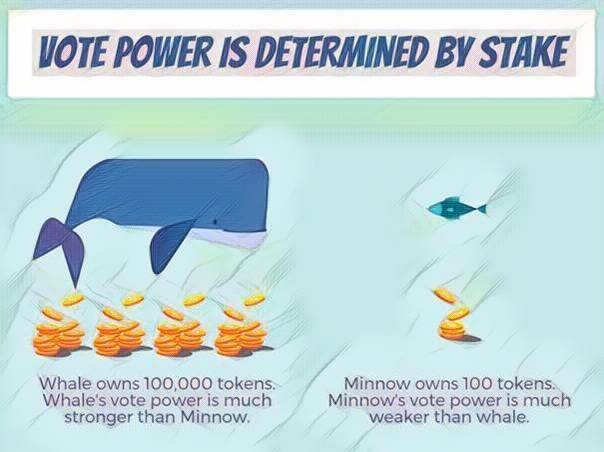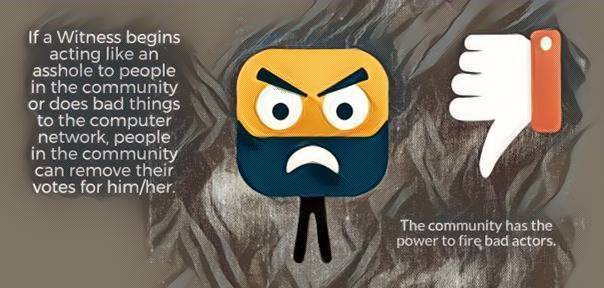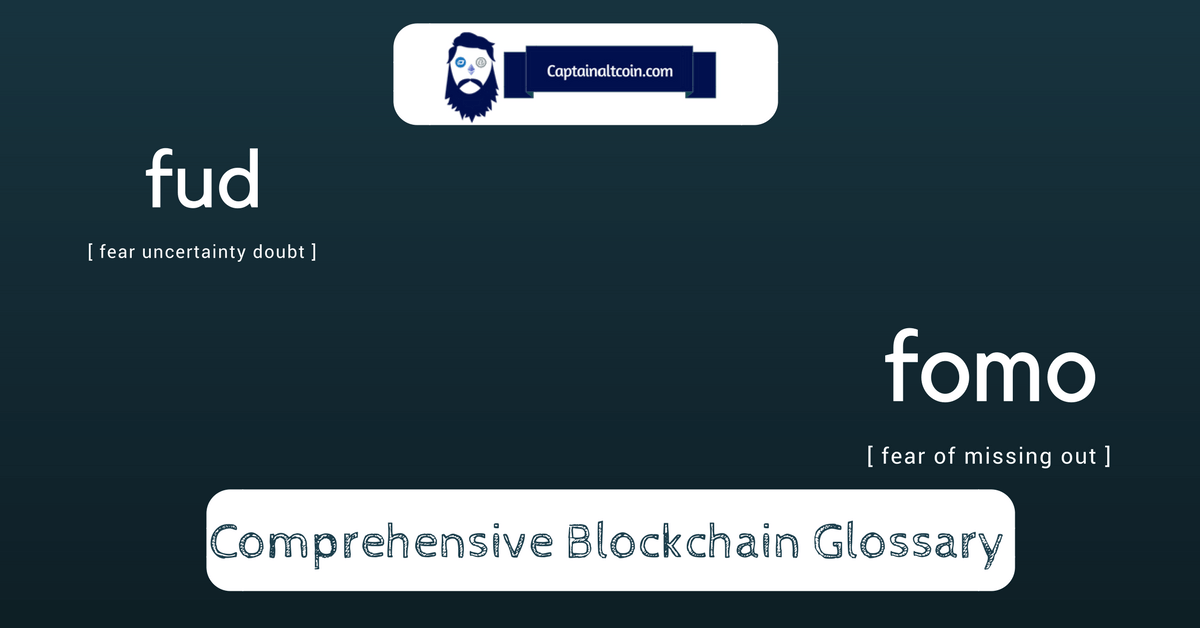
Delegated Proof-of-Stake (DPOS) is the fastest, most flexible, most efficient, and most decentralized, consensus model available, and I like to think of it as technological democracy.
Imagine a system in which you, the employee, get to fire your own incompetent manager. Well, there is a new system that is very close to the reality of employees getting to fire their own bosses, and it’s called Delegated Proof-of-Stake.
You’ve probably come across the terms Proof-of-Importance (PoI), Proof-of-Stake (PoS), Proof-of-Work (PoW) or other consensus algorithms if you’ve spent any time in the Bitcoin rabbit hole. But guess what, in this article I’m not going to use words like consensus or algorithm. I’m going to try to explain what Delegated Proof-of-Stake (DPOS) is in such a way that even a complete beginner could understand it.
What you'll learn 👉
Why Was Delegated Proof-of-Stake Invented?
Delegated Proof-of-Stake (DPOS) is a new method of securing a crypto-currency’s network, which attempts to solve the problems of both Bitcoin’s traditional PoW system, and the PoS system of Peercoin and NXT. Delegated Proof-of-Stake method implements a layer of technological democracy to offset the negative effects of centralization.
The DPoS method was developed by Bitshares’ lead developer Daniel Larimer, aka Bytemaster. He realized that Bitcoin mining was too wasteful of energy, and he also recognized that Bitcoin mining would become centralized in the future, with giant mining pools being in control of the Bitcoin network. Bitcoin’s system was too slow because of the way it was designed and the system it used – PoW. Larimer wanted to build a system that was capable of transaction speeds like 100,000 per second, so he decided to invent and build a new system that is lightning fast, uses very little energy, and is also very secure. He decided to name this new system Delegated Proof-of-Stake, or DPOS.
Delegated Proof-of-Stake and traditional Proof-of-Stake are very different, and the difference can be compared to the difference between direct democracy and representative democracy. In regular PoS, every wallet that contains coins is able to ‘stake’. This means it can participate in process of validating transactions and forming the distributed consensus and to earn coins in return. In a DPoS system every wallet that contains coins is able to vote for delegates. These delegates perform the function of validating transactions, maintain the blockchain and take the transaction fees as profit.
What are the Ingredients for Delegated Proof-of-Stake?
The ingredients include a blockchain, a cryptocurrency, community of people, rules and computers.
(The examples below are taken from the Steem blockchain)
A witness is an authority that is allowed to produce and broadcast blocks, and people in a particular cryptocurrency community vote for Witnesses to secure their computer network.

It is important to note that only the top 20 Witnesses get paid for their service. There are hundreds of backup Witnesses because many want to become a Witness.
People’s vote strength is determined by how many tokens they have, which means that people who own more tokens will influence the network more than people who own very few tokens.

It gets more and more difficult to remain a paid Witness as the community grows.

If a Witness stops doing a quality job securing the network, or starts acting like an asshole, people in the community can remove their votes, essentially firing the bad actor. Voting is always ongoing.

Current Cryptocurrency Projects That Use DPoS
- Ark (https://ark.io/)
- Lisk (https://lisk.io/)
- EOS (https://eos.io/)
- Steem (https://steem.io/)
- BitShares (https://bitshares.org/)
Here is a video that explains DPoS: (https://youtu.be/hAxDjAmRKkU)
Conclusion
This system works because it is able to recognize new valuable members and at the same time flush out bad actors. The system is dependent upon active voters in the community. That’s why educating new members about how the system works is extremely important to the well-being of the system. I’ve been in the Steem community for over a year. In that time, I’ve seen Witnesses come and go based on their reputation and actions.
The links below contain more in-depth descriptions of DPoS for those who want to understand it on a deeper level:
- https://hackernoon.com/explain-delegated-proof-of-stake-like-im-5-888b2a74897d
- Overview of different consensus algorithms:https://blog.wavesplatform.com/review-of-blockchain-consensus-mechanisms-f575afae38f2
- Facts about Daniel Larimer, the inventor of Delegated Proof of Stake:https://steemit.com/eosio/@xeroc/historical-facts-about-daniel-larimer-and-his-contributions-to-the-blockchain-industry
- The Merkle: https://themerkle.com/what-is-delegated-proof-of-stake/
- BitShares: http://docs.bitshares.org/bitshares/dpos.html
- DPOS updated white paper by Dan Larimer: https://steemit.com/dpos/@dantheman/dpos-consensus-algorithm-this-missing-white-paper
- DPOS vs. POW by Dan Larimer: http://bytemaster.github.io/bitshares/2015/01/04/Delegated-Proof-of-Stake-vs-Proof-of-Work/
- Dan Larimer invented DPOS in 2014: https://bitcointalk.org/index.php?topic=558316.0







